Our Regeneration team are playing a leading role in advancing research and access to therapies that can target the brain, in particular cell therapies.
We are helping to lay the groundwork in demonstrating the safety and efficacy of these therapies as future treatments for CP and helping to accelerate new therapies into clinical trials and support access pathways.
Substantial progress has been made since Australia’s first ever clinical trial of umbilical cord blood as a treatment for CP. In 2025, the Regeneration theme played a key role in supporting the first Australian child with cerebral palsy to be treated with cord blood via compassionate access.
Visit our dedicated cord blood webpage for more information about this important milestone.
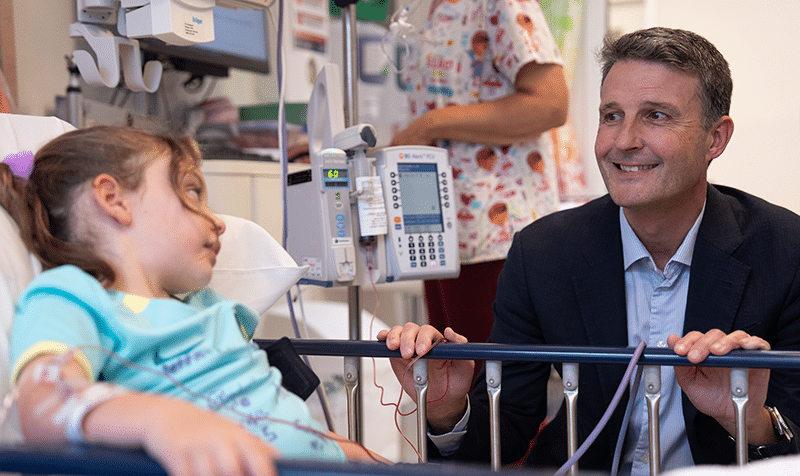

The CPA Regeneration team is leading the way in discovering and translating stem cell treatments and other therapies that target the brain for people with CP
Supported the first ever stem cell trial for cerebral palsy in Australia. Find out more here.
Collaborated to deliver the first access to compassionate cord blood treatment to a child with cerebral palsy in Australia. Find more information here.
Established the Cerebral Palsy Alliance Stem Cell Reference Group which now includes >60 members from the CP community.
We are dedicated to enabling access to new treatments once proven safe and effective. Cord blood is the most well researched cell therapy for CP and our projects in this space focus on supporting compassionate access for Australian families and designing the next phases of research to work towards treatment approval.
As access to cord blood treatment for cerebral palsy progresses in Australia, a registry will be needed to capture important information about who has received UCB, how this treatment was given, and gather information on its short- and long-term benefits. We are scoping the design, creation and implementation of this registry which will support funding, research and, ultimately improved access for families.
Countries like the USA have pioneered cord blood research for CP and continue to explore translation, plus offering compassionate access to treatment. This project (called a barriers and facilitators analysis) aims to publish key learnings from what is working to enable access to cord blood treatment for CP overseas.
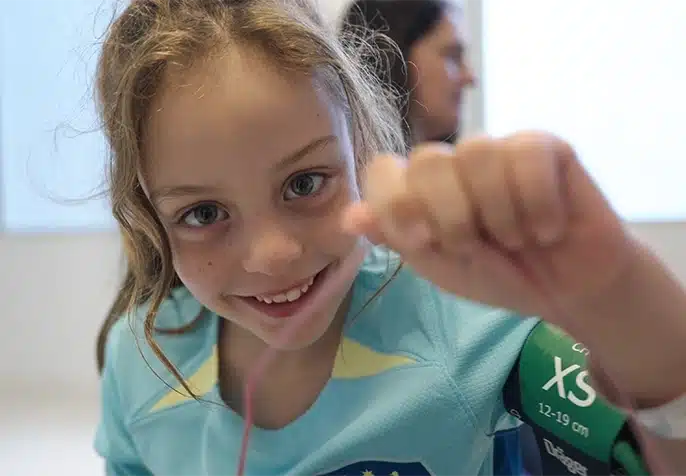
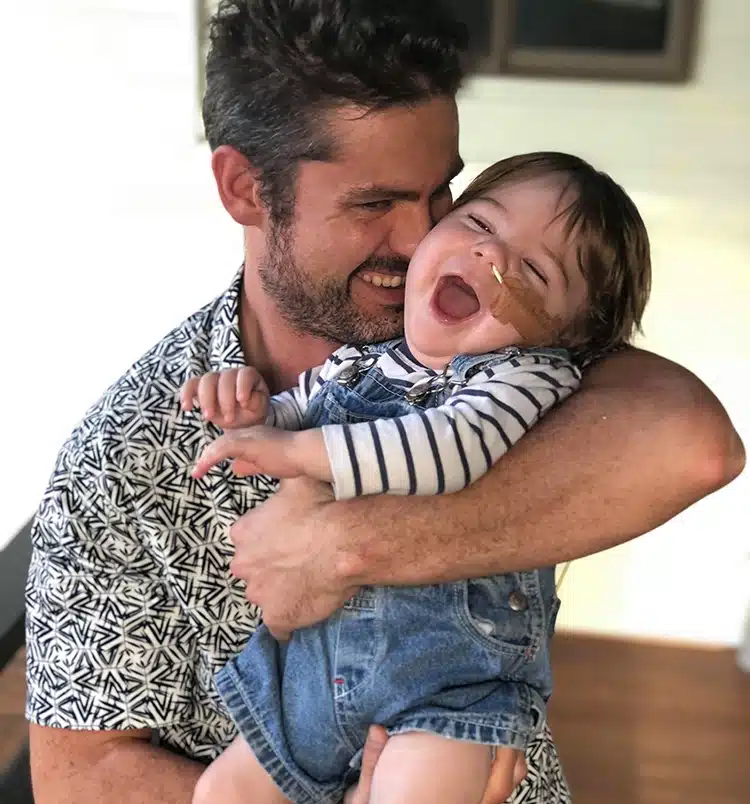
PREMSTEM is a €9M research project funded by the European Union’s Horizon 2020 research and innovation programme. The PREMSTEM team is an international collective of world-leading clinicians, researchers, stakeholder advocacy groups and an industry partner with well-established experience in neonatology and drug development. The PREMSTEM project aims to develop a new regenerative stem cell therapy to repair the brain damage caused by premature birth, also known as encephalopathy of prematurity.
A world-first trial investigating the safety and feasibility of a form of non-invasive brain stimulation, called transcranial direct current stimulation (tDCS), delivered to children with CP in their homes. This trial has the potential to change the way we provide treatment to children with CP on a global scale.
The CPA Stem Cell Reference Group brings together people with cerebral palsy, their families and supporters with clinicians and researchers to help shape the work we are doing to advance research and translation within the Regeneration theme. This group provides valuable input to decisions about research goals, questions and methods by contributing their ideas and lived experience. Find out at CP Quest.
We are committed to producing evidence-based, quality, engaging stem cell and regeneration theme content for the CP community, to inform, raise awareness and answer questions people with CP and their families may have about stem cell treatments.
We have co-founded and established the government funded Monash Preterm Cell Therapies Parent Focus Group at Monash (Melbourne). This 6-member group of parents’ support research and development of next generation cord blood therapies for babies born preterm. This focus group is funded by a 2021 MRFF Early to Mid-Career Researchers Grant (#2021053 CIA McDonald).
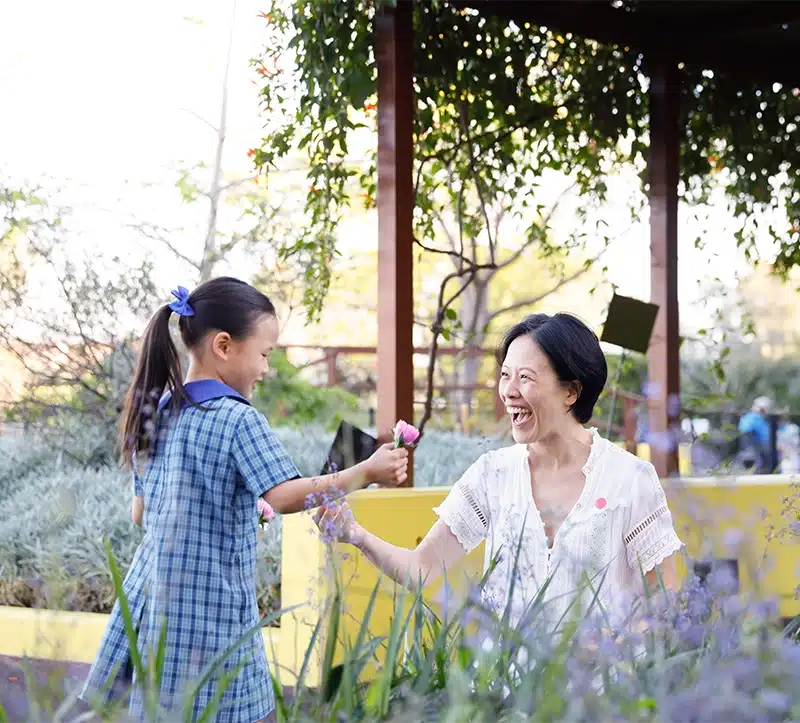
We conducted a survey of people in the Australian CP community to better understand the acceptability of NSC treatment, which may one day offer potential as a regenerative treatment for conditions like CP. Find out more here.
We led a a collaborative review of the reported data on people with cerebral palsy receiving mesenchymal stromal cells (MSCs). MSCs are safe and efficacious for improving the gross motor ability of people with cerebral palsy, but further harmonised research is needed.
An Australian-first clinical trial found that sibling umbilical cord blood can be safely used as a treatment for cerebral palsy. This trial enrolled 12 children with CP to receive matched sibling cord blood. Find out more here.
We led the largest ever, global analysis of data collected on children with cerebral palsy who had received cord blood as a treatment through a clinical trial. It showed that umbilical cord blood is safe and efficacious as a treatment for improving gross motor function in people with cerebral palsy, particularly within a specific group of “best responders”. Find out more here.
A world first Australian clinical trial, published in the Lancet, has shown that it is feasible to collect cord blood from the placenta of extremely preterm babies and it is safe to give it back. Find out more here:
In March 2020, Cerebral Palsy Alliance and Research Australia co-hosted a public event featuring a panel of experts discussing the latest in research about stem cells for the brain. During this event, CPA researchers conducted a survey which found overwhelming support for stem cell research for neurological conditions. Watch a recording of the full event here.


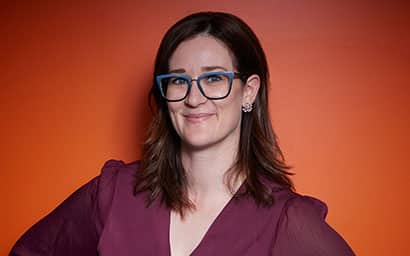
Leads the Regeneration Theme in researching stem cells and other therapies that target the brain for prevention, treatment, and possible cures for cerebral palsy.

Involved in the design, conduct and dissemination of cell therapy clinical trials for babies and children with cerebral palsy; facilitating consumer and community reference groups to support involvement in research; advocacy and communications on umbilical cord blood projects across Australia.
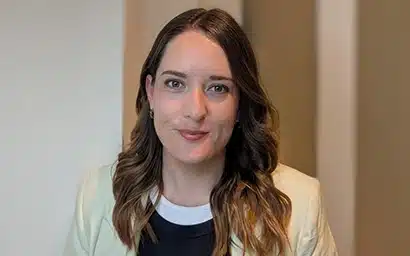
Supporting and leading pioneering projects investigating cell therapies and regenerative therapies that aim to improve outcomes for people with cerebral palsy. Working within the Regeneration theme to evaluate studies, explore results and share findings with the community.

Responsible for providing research administrative support to the Regeneration theme and across a variety of projects within the Research Institute.
Our team understands that research is not always accessible or easy to digest, especially in the world of cell therapies and treatments that target the brain. We frequently generate summaries of recent findings, breakthroughs and updates for you to enjoy. Read some of them here.
Cell therapy research is a priority for the CP community. Hear from families about what this research means to them and how they help shape our focus.
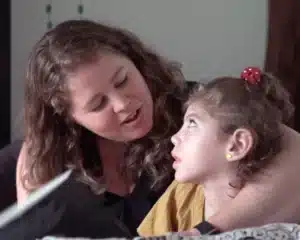
Stem cells are special cells considered the “building blocks” of the body. Stem cells have two key properties:
(1) they can make copies of themselves, and
(2) they can mature or “differentiate” to form other types of cells.
There are many different types of stem cells, and these can come from a variety of sources and tissues in the body. Scientists are interested in researching how stem cells might be used for treating a range of conditions. For example, by replacing lost cells or helping to repair injured tissues.
There is also interest in how other types of cells (cells that are not stem cells) could also be used as treatments. The term Cell Therapies is therefore often used to describe the use of stem or non-stem cells as possible treatments.
Research using Cell Therapies to help repair or regenerate the body is also often called Regenerative Medicine.
There are several cell therapies currently being researched for the treatment of cerebral palsy. These different cell types come from different sources and have unique characteristics influencing their potential as future treatments for CP. These cell types include:
(1) Umbilical cord blood
Umbilical cord blood is the blood left in the placenta after a baby is born. Cord blood can be easily collected once the cord has been cut. Umbilical cord blood is a mixed cell therapy meaning it contains a variety of different stem, immune and other cells. Cord blood is the longest studied cell therapy for treating cerebral palsy. More information about cord blood for cerebral palsy can be found here.
(2) Mesenchymal stromal cells
Mesenchymal stem or stromal cells (also called “MSCs”) can come from a range of sources including bone marrow, fat, umbilical cord tissue, and even from inside our teeth. Mesenchymal stromal cells are also sometimes referred to as ‘signalling cells’ as they are known to release lots of factors that are thought to be beneficial for treating a range of conditions.
(3) Haematopoietic stem cells
Haematopoietic stem cells are also known as “blood-forming stem cells”. These cells have been used to treat blood conditions (such as leukaemia’s) for more than 50 years and are usually obtained from bone marrow but are also present in umbilical cord blood.
Umbilical cord blood cells, mesenchymal stromal cells and haematopoietic stem cells are thought to work for the treatment of cerebral palsy in similar ways. This is by calming harmful brain inflammation and releasing helpful supportive factors that support indirect brain repair, for example by regulating the immune system. They don’t turn into brain cells themselves, but they create a more supportive environment to allow the brain to repair itself and improve brain connectivity.
(4) Neural stem cells
Neural stem cells are the stem cells of the brain. Neural stem cells are often sourced from donor foetal tissue however researchers are investigating newer methods to obtain neural stem cells from other cell and tissue types.
Neural stem cells may work for cerebral palsy by directly replacing lost or injured brain cells, promoting new connections within the brain, or releasing factors that may help the brain to repair itself. It is hoped that one day, research using brain stem cells may unlock the possibility of repairing and regenerating the brain after injury.
Cell therapies can be given in a variety of ways, for example via a drip in the arm, injection into the spine, or even by direct transplantation into the brain using neurosurgery. The way in which a cell therapy is given typically relates to the type of cell and its properties. For example, because umbilical cord blood cells or mesenchymal stem cells work by releasing factors to help reduce inflammation in the body they can be given less invasively (via a drip in the arm) compared to neural stem cells that need to be delivered directly into the brain to replace injured brain cells.
Some cell therapies can be obtained from a donor, while some cells are self-donated, meaning they need to be collected first before they can be given back. This is particularly true for haematopoietic stem cells collected from bone marrow, where a surgical procedure or blood filtering is used to collect the cells.
Depending on the type of cell therapy, medications may need to be given before or after the cell treatment. These may be needed to help with collection of the cells, or to help to manage or reduce potential side effects of the treatment itself. There is also evidence to indicate that intensive rehabilitation after cell therapy, to train skills that align with the child’s goals, is also important to maximise potential benefits.
Like all medical treatments, treatment with cell therapies does carry risks. These risks can be linked to the type of cell therapy, the way in which it is given, as well as the setting in which treatment occurs.
In general, treatment with cell therapies like umbilical cord blood and mesenchymal stem cells has shown to be safe for individuals with cerebral palsy. These treatments are generally well tolerated, with mild and temporary side effects such as fever, cough or irritability. However, serious (even life-threatening) reactions are possible, particularly for any cell therapy product which is frozen for storage such as umbilical cord blood. This is due to an allergic reaction to the chemical (‘DMSO’) that is used to protect the cells during storage and requires immediate medical treatment by specialists trained to respond to such situations. It is therefore important that cell therapies are given under proper medical supervision in a suitable clinical setting (such as a hospital).
Treatment with other types of cell therapies, such as neural stem cells, or even more experimental stem cell treatments can carry much greater risks. For example, some people are concerned that certain types of cell therapies can cause cancer. However, this is only a risk for some cell types.
In addition, all cell therapies also carry the risk of infection if the cell therapy product hasn’t been processed or handled correctly and becomes contaminated. Other risks come from how treatment is given. For example, giving the cells via a drip in the arm carries the risk of bruising and swelling, however, is far less invasive than transplantation directly into the brain, which has carries additional risks from undergoing neurosurgery.
For any cell therapy, it is important to have a clear understanding of all the potential risks, and how these will be managed by the team delivering the treatment.
Currently, there are no approved cell therapies for cerebral palsy in Australia, or anywhere else in the world. This means that access to cell therapies is limited to a small number of research studies (clinical trials) or potentially via approval pathways called ‘Special Access’, also known as ‘Compassionate Access’. Some families may choose to seek treatment overseas at private clinics.
(1) Clinical trials
Clinical trials are a regulated process that involves testing a new treatment on a group of people to see whether it is safe and if it works. Globally, there are only a handful of clinical trials investigating cell therapies for cerebral palsy, and these often have strict entry criteria. Information about available clinical trials can be found by searching the Clinicaltrials.gov website. It is important to know however that not all clinical trials are listed there, and some listed trials may not be regulated or endorsed. It is important to discuss involvement in any potential research trial with members of your care team.
(2) Special Access/Compassionate Access
Special Access (or Compassionate Access) is a regulated pathway that may offer access to an unapproved treatment when there are no available clinical trials and when the proposed benefits are greater than any associated risks. In Australia, treatment via the Special Access Scheme must be initiated by the child’s treating clinician, and like clinical trials there is strict eligibility criteria. In 2025, CPA supported a young girl from Melbourne to receive her own umbilical cord blood cells as a treatment for her cerebral palsy via the Special Access Scheme (Category B) pathway. To read more about Zara’s treatment story and access factsheets for clinicians and families– click here.
Other countries may offer similar compassionate access pathways for the treatment of cerebral palsy with cell therapies, although these programs are often associated with significant cost. One example is the Expanded Access program at Duke University in the US which enables infusions of umbilical cord blood infusions for children with brain injuries, including cerebral palsy. For more information on this pathway – click here.
(3) Private clinics
Various cell therapies are also available through private clinics in many places around the world. This is an unregulated pathway where patients pay to access to unapproved cell therapies for several conditions, including cerebral palsy. As these clinics are unregulated, it can be difficult to verify the safety and quality of treatments offered at private clinics, and extra caution should be taken before undergoing these treatments.
It is unlikely that cell therapies will ever completely replace traditional therapies for cerebral palsy. Many cell therapies, like umbilical cord blood and mesenchymal stem cells, are thought to work best in combination with evidence-based rehabilitation/physical therapy, whereby the cell treatment may help to provide a boost to the effects of rehabilitation for improving gross motor skills and other outcomes. However, people with cerebral palsy are likely to still require various ongoing therapies. It is possible that, in the future, other types of cell therapies with the potential to regenerate the brain after injury (such as neural stem cells) may help to more drastically reduce the symptoms of cerebral palsy. This may lessen the need for ongoing interventions and disability supports. However, these types of cell therapies are still being investigated to better understand their safety and feasibility as potential treatments for cerebral palsy.
There is a lot of information about cell therapies available online, but not all of it is accurate. Knowing whether information is reliable can seem tricky. Some important things to think about when reading information are:
Thinking of these aspects when considering information about cell therapies and cerebral palsy will help you to work out which sources can provide reliable and useful information. One handy resource to get you started is the International Society for Stem Cell Research Guide to Stem Cell Treatments. This explains many stem cell basics and things you might want to ask if considering a stem cell treatment.
In addition, having discussions with members of your care team (doctors, allied health professionals), seeking out a second opinion from experts, reading scientific articles, and joining information forums, are all helpful ways to broaden your understanding of cell therapies for cerebral palsy.
You can also contact the Regeneration team at Cerebral Palsy Alliance with questions you have about cell therapies and cerebral palsy – click here to email us.
Australia has two ways to store umbilical cord blood – publicly or privately.
(1) Public cord blood banking
Australia has three public cord blood banks in Melbourne, Sydney and Brisbane. The purpose of these banks is to collect and store publicly donated cord blood units to be used for treating children and adults who need a haematopoietic stem cell transplant for conditions like blood cancer and blood disorders. Once cord blood units are donated to the public bank, the family no longer has any ownership of the cord blood cells. Because Australia has a good stockpile of cord blood units in the public banks, collection of publicly donated cord blood is currently only happening at a handful of hospitals and from a small number of births.
In Australia, cord blood can only be released from the public banks for approved indications (like blood cancers) or ethically approved clinical trials. Therefore, clinical trials are the only way that publicly donated cord blood could be accessed for cerebral palsy.
(2) Private cord blood banking
Private cord blood banking allows families to choose to store their child’s cord blood privately (for a fee) for exclusive use by their child or a family member. It can be thought of like an insurance policy, where you pay to have the cord blood available in case it may be needed one day. Cell Care is Australia’s private cord blood banking company.
Some parents of a child with cerebral palsy may have chosen to bank their cord blood privately at birth. Cell Care also offers a compassionate banking program for families who have a child with cerebral palsy and are expecting another baby. More information about this banking program can be found here.
In Australia, privately stored cord blood (either a child’s own or that of a full biological sibling) can potentially be used for treating cerebral palsy via Special Access. More information can be found here.

Help transform lives by supporting cerebral palsy research. Your donation brings hope and progress for babies, children and adults with cerebral palsy, and their families.
